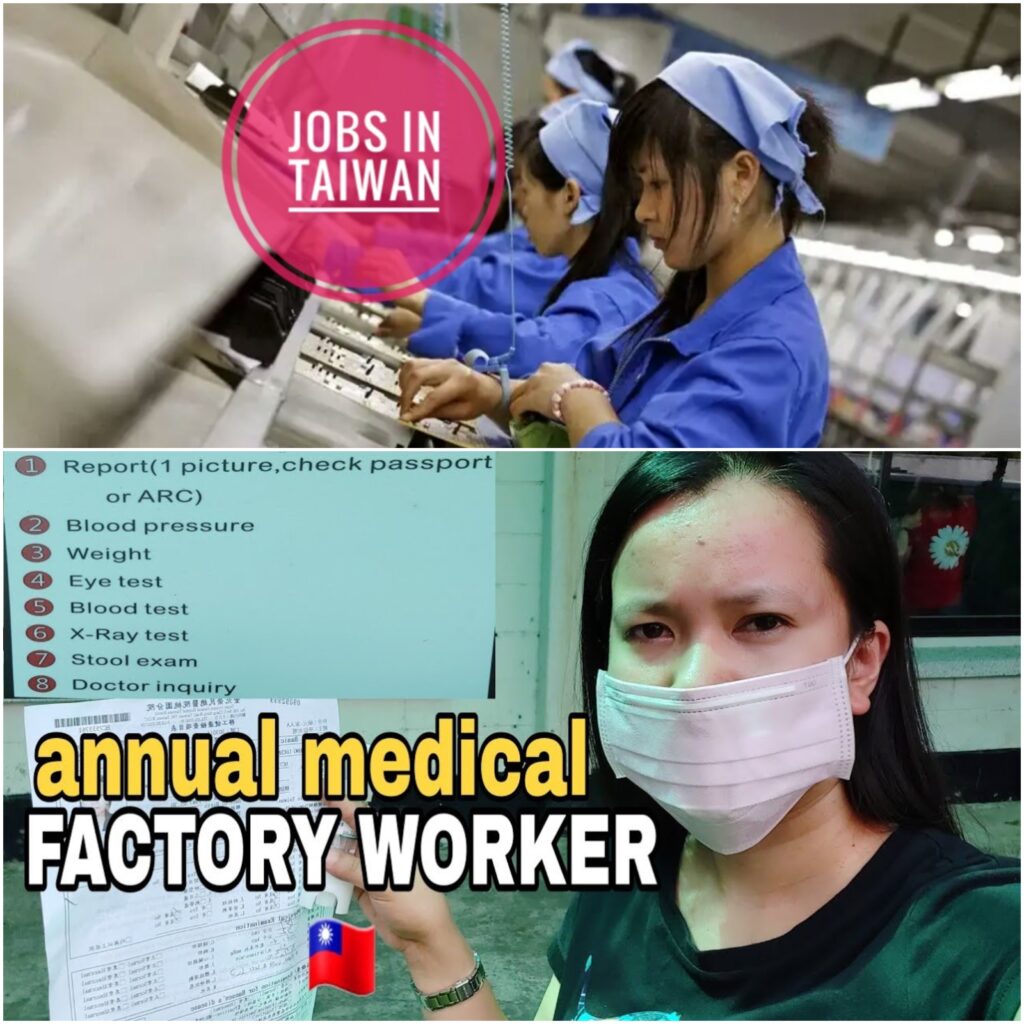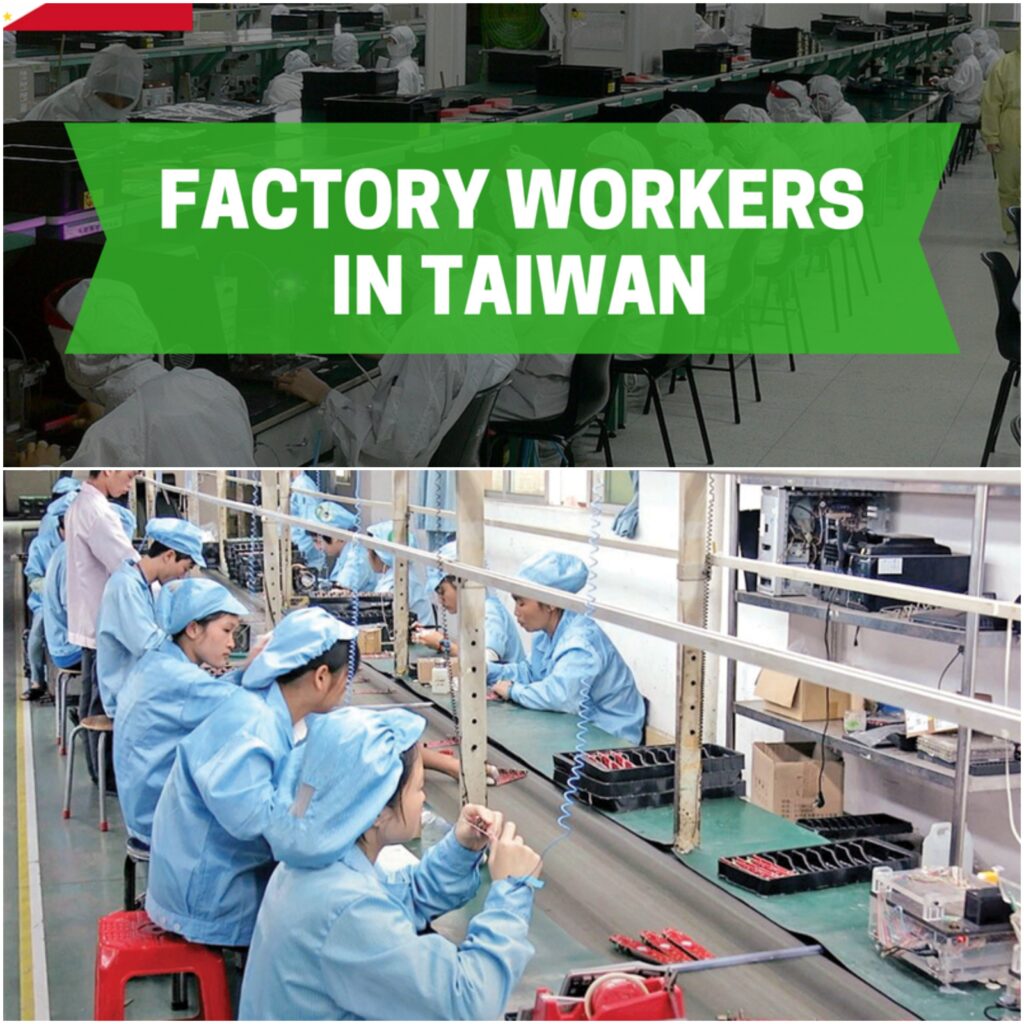Working as a factory worker in Taiwan requires meeting specific medical standards to ensure the safety and well-being of employees in a demanding environment.
These medical requirements not only protect the workers but also making sure the factory stays productive and compliant with health and safety regulations.

Medical Requirements for Factory Worker in Taiwan
- Taiwan Factory Worker Health Regulations
Taiwan has established clear health regulations to understand factory workers are physically capable of handling industrial tasks.
These laws are overseen by government agencies to protect workers and employers.
Meeting these requirements is necessary to securing a factory job, as failing to do so can result in denied employment or visa applications.
Essential Medical Tests Required
Applicants for factory work in Taiwan must undergo a series of medical tests.
General Physical Examination: To assess overall health and physical fitness.
Blood Tests: To screen for conditions like HIV, Hepatitis B, and other infectious diseases.
X-Ray or Lung Function Tests: To check for respiratory issues or infections like tuberculosis.
Vision and Hearing Checks: To ensure the worker can safely operate machinery or perform other job-related tasks.
These tests are designed to identify any medical issues that could impact a worker’s ability to perform their duties safely.
Health Conditions That May Affect Eligibility
Certain health conditions may disqualify individuals from being eligible for factory work in Taiwan.
Common disqualifiers include,
Communicable Diseases: Conditions like tuberculosis or hepatitis that may pose risks in a shared work environment.
Chronic Illnesses: Such as severe diabetes or heart conditions that could affect job performance.
Mental Health Issues: Severe mental health conditions that could interfere with workplace safety or productivity.
It is essential for applicants to address any known health issues before applying to avoid complications during the medical screening process.
Read: What is the long-term family visa in Thailand?
Process for Completing Medical Examinations
The medical examination process is straightforward and designed to help applicants meet the requirements efficiently.
- Scheduling an appointment with an authorized medical facility
- Completing the required tests and examinations
- Submitting the results to the employer or visa processing authority
These tests can be conducted in Taiwan or in the applicant’s home country, as long as the facility is approved.
Cost of Medical Examinations and Who Pays for Them
- The cost of medical examinations for factory work in Taiwan varies depending on the country and the medical facility conducting the tests.
- On average, these costs range from $50 to $150. Some employers reimburse these expenses, so it is important to check with the hiring company for their policies.
What to Expect During the Medical Screening?
- The screening usually lasts a few hours and includes routine check-ups like blood tests, x-rays, and physical exams.
- The process is conducted professionally, ensuring privacy and comfort for applicants.
Tips for Passing the Medical Tests
Here are a few tips,
Maintain a Healthy Lifestyle: Eat a balanced diet, exercise regularly, and get enough rest before the tests.
Address Pre-Existing Conditions: Consult a doctor to manage any health issues you may have.
Avoid Unhealthy Habits: Refrain from smoking or drinking alcohol, as these can affect test results.

Frequently Asked Questions
1. Are medical tests mandatory for all factory jobs?
Ans: Yes, medical tests are required for most factory positions to ensure safety and compliance.
2. Can medical rejections be appealed?
Ans: In some cases, you can provide additional medical documentation or seek a second opinion if you believe a rejection was unfair.
3. How long are the medical test results valid?
Ans: Medical test results are typically valid for 3-6 months, depending on the employer’s requirements.
Bottom Line
Fulfilling the medical requirements is a must step toward securing a factory worker job in Taiwan and ensuring a safe and productive work environment.